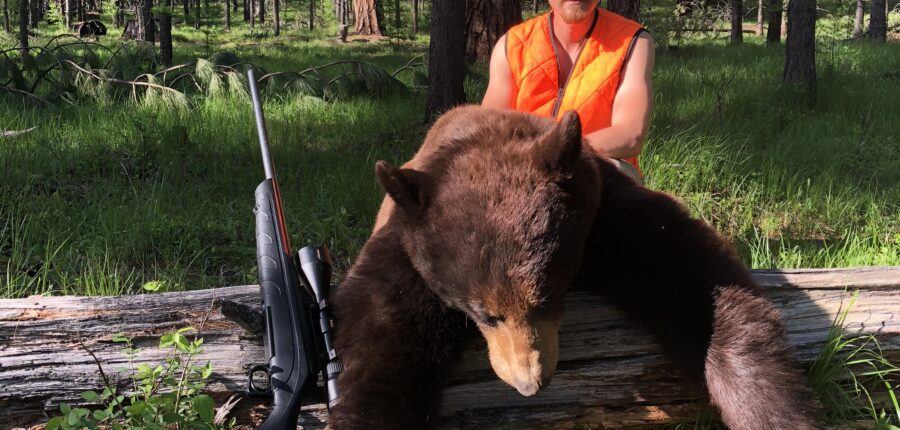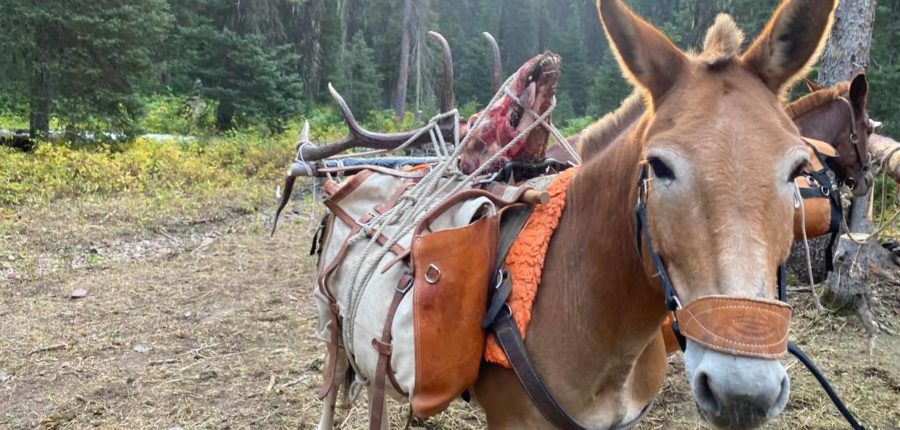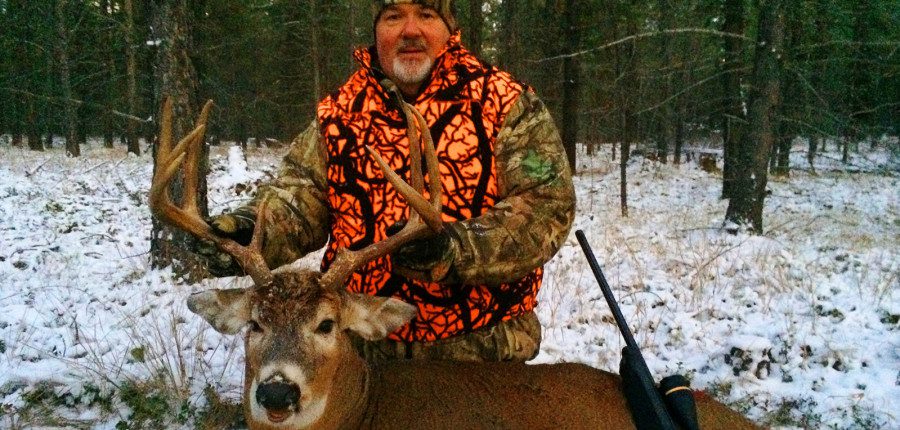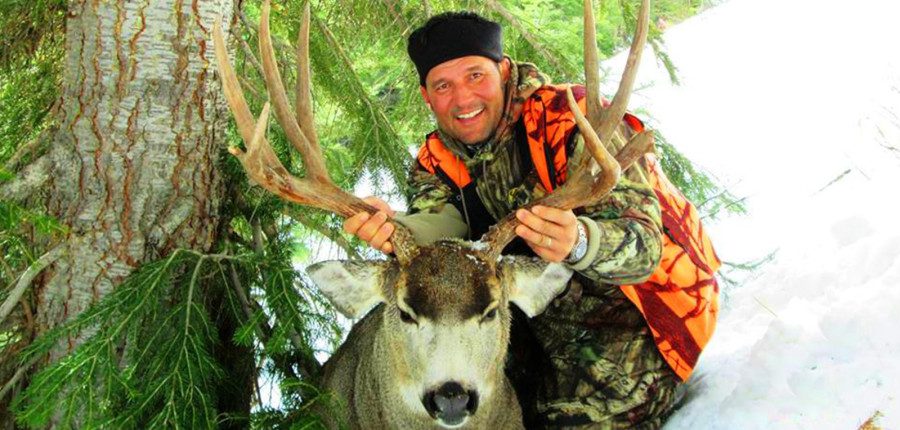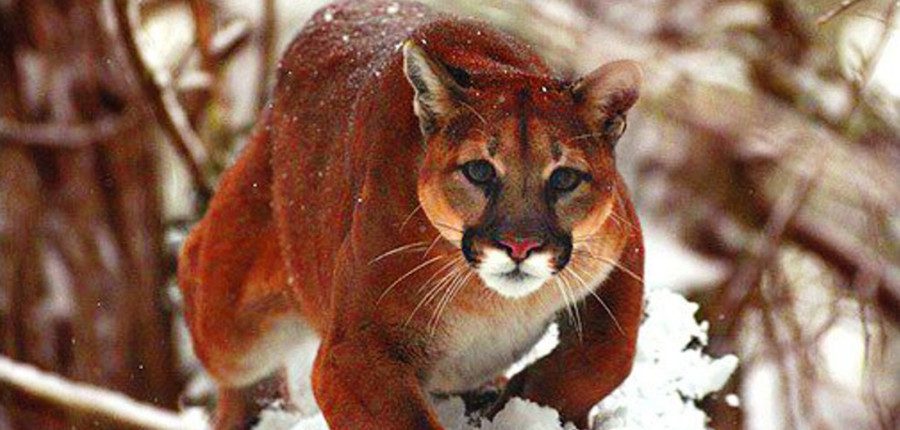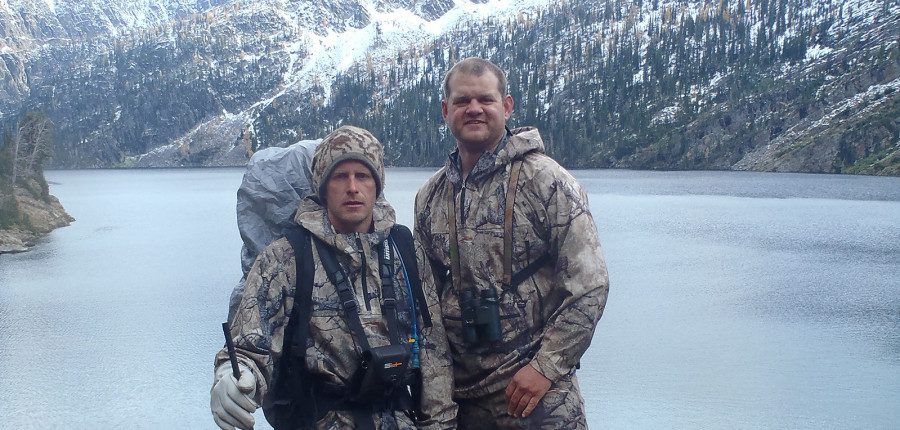A Montana Experience
The Thrill of the Chase
Hunting with Swan Mountain Outfitters is always free chase. While we employ highly skilled and experienced guides, these wilderness big game hunts are very challenging and do not carry guarantees of the harvesting of game. If the thought of going home without of an animal is not palatable to you, do not book a hunt!
Where We Hunt
Swan Mountain Outfitters is fortunate to have, based on our hunting permits, access to thousands of acres of the Flathead National Forest, in and around the famed Bob Marshall Wilderness. While this hunting area in Montana is open to resident hunters, few choose to pack into the wilderness or leave the valley floor, leaving our guides to help you explore a rich stock of wildlife and vast hunting terrain.
Swan Mountain Outfitters operates our hunting trips under permits from the U.S. Forest Service and State of Montana DNRC. We operate on public land. All hunts are conducted under the Outfitter’s License (#34041) of Patrick Tabor.
What We Target
- Mule Deer
- Whitetail Deer
- Elk
- Black Bear (spring and fall)
- Mountain Lion (winter)
- Archery Elk & Whitetail Deer Hunts
- Multi Weapon
- Combination Big Game Hunts
- Moose or Mountain Goat
* *Swan Mountain Outfitters offers Moose and Mountain Goat backcountry hunts in Hunting Districts #130 and #150. The permits are available by special limited drawing with an application deadline of May 1st each year. The season runs September 15th – November 29th. Drawing a tag is a challenging process and if you are lucky enough to get one it will be a ‘once in a lifetime’ hunt. Please contact us for more details on how our guides can help you achieve your dream harvest of a moose or mountain goat on one of our backcountry hunts on horseback with Swan Mountain Outfitters.
**We also offer a LONG RANGE SHOOTING COURSE** This 3 day Course, taught by lead instructor DAVID JARVIS who received his training from his career as a Marine Corps Scout Sniper, is designed for both novice and experienced shooters who want to enhance their high altitude, high angle shooting abilities. Whether you are a hunter or recreational shooter looking to increase your skills in the field or a guide wanting to expand your skillset and marketability, this Course is perfect for you. Participants will learn the fundamentals of long range shooting, including: proper rifle setup, ballistics, wind reading, and shot placement. You will also have the opportunity to practice shooting from 100-1000 yards in a mountainous environment under the guidance of our knowledgeable instructors. Lodging and meals are included. CHECK RATES / AVAILABILITY
For more details on hunts by species, make sure to scroll all the way down this page where we can address each in greater detail. First though, read through the next “know before you go” section to make sure we are the right outfitter for you.
Know Before you Go
At Swan Mountain Outfitters we are committed to providing a quality guided mountain horseback hunt experience. We want our hunters to fully understand the nature and difficulty of our hunts. Call us old fashioned, but we believe in an honest and upfront approach, no surprises. So here’s what you need to know before you go!
Trophy Hunts
Unlike private land or fenced hunts which allow outfitters exclusive access to trophy sized animals, we lack control over the size of the animals we encounter. To be sure, we have harvested very admirable size animals in each species we pursue, but we consider a every harvest a “trophy” of the hard work put in to achieve it. If you anticipate being dissatisfied with anything less than a trophy size, we’re probably not the outfitter for you. For us, it’s all about the thrill of the chase!
Hunt Format
Our hunts are free chase hunts conducted on public land in the Flathead National Forest as well as in and around the Bob Marshall Wilderness Complex. While a private land hunt carries a higher level of assurance of seeing and harvesting game, the reality of hunting public land is that it harder. There is a chance you may not see an animal during your hunt. We do our best by employing a team of knowledgeable and professional guides, using best in class equipment and stock, and possessing a strong understanding of our permitted hunting territory and animal movement patterns.
Success Rates
It seems that the most commonly asked question is, “What is your success rate?” There is widespread debate as to how outfitters calculate success; is it kill? opportunity? sightings? All outfitters, including us, can cite statistics of past seasons; however, we have found it to be a poor predictor of a particular hunter’s odds for harvest success. If your measure of success is a harvest, the reality of any public land hunt is there are NO guarantees. Before you reserve your hunt, please carefully consider if going home without an animal would negatively impact your experience.
Physical Rigor
Are you prepared mentally and physically for a free chase hunt in the mountains of Montana? Our hunting territory encompasses steep, rugged terrain. On average hunters can expect to ride up to 5 hours in the saddle and hike 10 miles per day. Hiking and riding times will vary with each hunt. For example, hunters after mule deer may spend 7 to 10 hours riding if we lack the snow to push them down from the mountain tops. You do not need to be an expert horseman, but you do need to be prepared to spend a lot of time in the saddle. We highly recommend hunters practice their still-hunting, hit the gym, and build saddle stamina before the trip. Having the physical ability to go where the animals are is a huge factor in a successful hunt.
Weather Patterns
We are located in the Rocky Mountains of Northwest Montana. Weather can change quickly and can greatly impact the success on any hunt. Weather conditions are unpredictable and out of our control. The temperature can vary from -20 to 70 degrees so it is important you prepare for the extremes. It’s simply the nature of the beast, and as such we do not issue any refunds due to inclement weather.
Accommodations
Life in an outfitting camp lacks modern amenities like flush toilets and electricity, but we view this as part of the authentic experience of a wilderness hunt! Depending on the areas to be accessed, hunters may stay in a base camp, upper camp, or spike camps. Base camp can be accessed by dirt road and hunters stay in wall tents with a woodstove. Base camp is used as a launch point for early season hunts, hosts the duration of the late season ungulate hunting, and hosts bear hunts. Upper camp is a day’s ride from base camp, accessed only by foot or hoof, and completely lacks electricity but still features wall tents with wood stoves. Upper camp is often used in early and mid season ungulate hunts. Spike camps are used to get even deeper into the wilderness and utilize alpine tents lacking a woodstove. Spike camps are used in archery elk hunts and the opening week of general season. Our base camp and upper camp feature dedicated camp cooks and meals are served family style at the table. In spike camps, how you prepare and structure meals is simply up to you and your guide. No matter the kitchen amenities, we’ll make sure you are well fed! We never underestimate the importance of good food on a rigorous hunt.
Additional Fees
In addition to the cost of the hunt, hunters should be financially prepared for additional expenses such as:
- Licenses: license rates are determined by Montana Fish, Wildlife and Parks and they can change year to year. Depending on your target species, could cost an additional $300-$1,500. We will update license rates in our rates section for your convenience.
- Gratuity: You are supported on your hunt by a fantastic team. What feels appropriate to tip is something you’ll consider at the end of your hunt. You might budget a tip for your guide to be $100 a day or 10-15% of the hunt cost. For a cook, camp jack, or packer you might consider $15-25 per day. What we can say with certainty is that staff are always greatly appreciative of tips.
- Transportation charges to/from camp: Transportation to/from camp is not included. If you lack your own transportation, we can shuttle you for an additional fee. Prices per-person one-way:
- $95 transportation to/from Glacier International Airport or other Kalispell location
- $120 transportation to/from Missoula International Airport or other Missoula location
- A Hunter Defense Fund: A fee of $50 per hunter is collected from all outfitted clients of Outfitter members of the Montana Outfitter & Guides Association for the purposes of defending nonresident hunting rights in the state of Montana.
- Processing the meat: elk: $275, deer: $100, Bear: $85-$100 or up to $300 if you go to a smoke house
- Taxidermy: We can recommend a local taxidermist who can ship to you upon completion. His prices are competitive with those throughout the country.
- Shipping the meat, cape and antlers: $100-300 on average, depending on the butcher, weight, and destination. If you harvest and do not want the meat you can donate it to us for no cost.
Equipment & FAQs
Ensuring that you bring all the personal clothing and equipment you will need is important for your comfort and safety. You can click on each link below for details.
Backcountry Elk_Deer Hunt Equipment List
Base Camp Deer Hunt Equipment List
Archery Elk Hunt Equipment List
Spring Bear Hunt Equipment List
Check out Our Hunts
Now lets get to the fun part! Click the hunt below that interests you!




